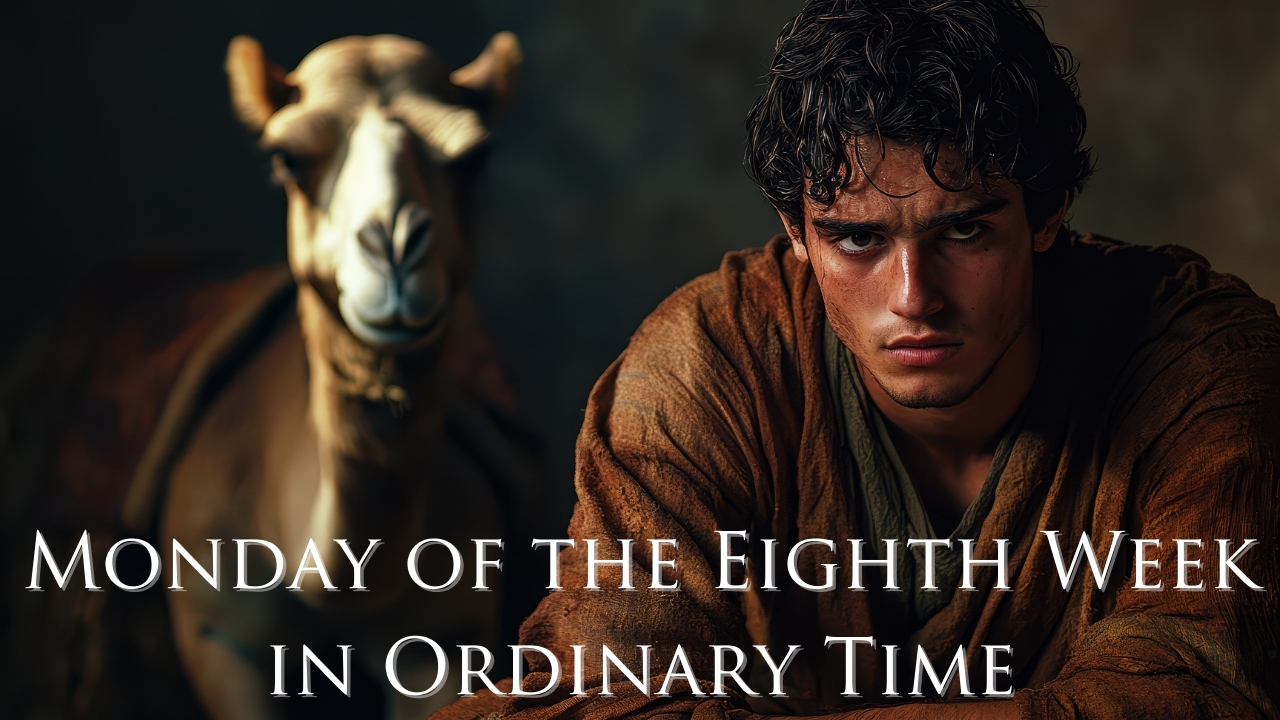The Joyful Warrior: When Saints Fight with Laughter | Daily Readings | May 26, 2025

May 26, 2025 – Memorial of Saint Philip Neri, Priest. Daily Catholic Lectionary Readings.
Saint Philip Neri discovered joy as spiritual warfare: “A joyful heart is more easily made perfect than a downcast one.” In Counter-Reformation Rome, while others fought Protestant challenges with arguments, Philip won souls through supernatural happiness that made holiness irresistibly attractive. Today’s readings show how the Holy Spirit opens hearts through attraction rather than argument, just as Philip’s Oratory drew young Romans to Christ through celebration rather than condemnation.
This cinematic reflection explores:
- How Saint Philip Neri used joy as weapon against forces crushing human spirits
- Why the Holy Spirit testifies through transformed lives radiating supernatural happiness
- What Jesus meant when He warned joyful witnesses would face inevitable opposition
- How spiritual warfare through attraction conquers more effectively than confrontation
Readings: Acts 16:11-15; Psalm 149:1b-2, 3-4, 5-6a and 9b; John 15:26—16:4a
Perfect for anyone feeling defensive about their faith, wondering how to make Christianity attractive, or seeking Philip Neri’s secret of conquering through joy.
#JoyfulWarrior #SaintPhilipNeri #SpiritualWarfare #MemorialDay #JoyAsWitness
The Joyful Warrior: When Saints Fight with Laughter
Saint Philip Neri once said, “A joyful heart is more easily made perfect than a downcast one.” This wasn’t mere optimism, it was battle strategy. Philip understood something profound: joy is a weapon against the forces that try to crush the human spirit.
Today’s readings reveal why the Church celebrates this “Apostle of Joy” alongside the Advocate Jesus promised to send. Both Philip and the Holy Spirit specialize in the same divine work: bearing witness to truth through transformative joy that conquers opposition.
Paul discovered this dynamic in Philippi when he met Lydia by the river. “The Lord opened her heart to respond to Paul’s message.” Notice the gentle power, not forced conversion but invited transformation. Lydia’s heart opened like a flower to sunlight, and her entire household followed her into baptism and hospitality.
This is how the Holy Spirit works: opening hearts through attraction rather than argument, through beauty rather than brutality.
Philip Neri mastered this same approach. In Counter-Reformation Rome, when the Church faced Protestant challenges and internal corruption, Philip chose neither angry denunciation nor theological debate. Instead, he gathered young Romans for prayer, music, and spiritual conversation in his Oratory. He won souls through joy.
When someone asked Philip how to become holy, he replied, “First, be good. Second, be good. Third, be good—and then be natural.” His sanctity flowed from supernatural grace expressing itself through utterly human warmth.
The psalmist understood this warfare through worship: “Let them praise his name with dancing and make music to him with timbrel and harp.” This isn’t casual celebration, it’s strategic spiritual combat. “For the LORD takes delight in his people; he crowns the humble with victory.”
Joy becomes the crown that signals victory over the forces that would steal, kill, and destroy human flourishing.
But Jesus warns His disciples that this joyful witness will provoke fierce opposition: “They will put you out of the synagogue; in fact, the time is coming when anyone who kills you will think they are offering a service to God.”
Here’s the paradox: the same joy that attracts open hearts infuriates closed ones. Light exposes darkness, and darkness doesn’t go quietly.
Philip Neri experienced this tension throughout his ministry. His joyful approach to holiness threatened religious people who preferred gloom and severity. His success with young Romans irritated clergy who thought Christianity should be somber and punitive. His supernatural gifts—ecstasies, levitation, miraculous healings—embarrassed those who preferred religion without power.
Yet Philip responded to opposition with characteristic humor. When critics complained about his informal methods, he performed more dramatic penances to show he wasn’t soft on sin, then returned to his joyful ministry. When skeptics questioned his mystical experiences, he made jokes about them, refusing to take himself too seriously while taking God absolutely seriously.
“But when the Advocate comes, whom I will send to you from the Father, the Spirit of truth who goes out from the Father, he will testify about me.” The Holy Spirit’s testimony isn’t just doctrinal correctness but transformed lives radiating supernatural joy.
Philip Neri became a living example of this Spirit-testimony. His joy wasn’t manufactured positivity but authentic fruit of divine union. People were drawn to Christ not by Philip’s arguments but by his evident happiness in God’s presence.
This is why the Church pairs Philip Neri with today’s Gospel about the Advocate. Both reveal how divine truth conquers through attraction rather than coercion, through joy rather than judgment, through love rather than law.
“They will do such things because they have not known the Father or me.” Opposition to joyful Christianity often flows from fundamental misunderstanding of God’s character. People who see God as harsh taskmaster naturally resist those who experience Him as loving Father.
Philip Neri’s genius was making divine love visible through human warmth. His Oratory became a place where young men discovered that following Christ wasn’t burden but liberation, not duty but delight.
“All this I have told you so that you will not fall away.” Jesus prepares His disciples for opposition not to discourage them but to strengthen them. When persecution comes, they’ll remember His warning and recognize it as confirmation rather than contradiction of their calling.
Philip Neri understood this preparation. He taught his spiritual children that difficulties were normal, not signs of divine displeasure. He showed them how to maintain joy even when facing criticism, misunderstanding, or active persecution.
The psalm’s conclusion captures Philip’s approach perfectly: “This is the glory of all his faithful people.” Glory isn’t future reward but present reality available to anyone willing to praise God with dancing, to fight spiritual battles with joy, to bear witness through attraction rather than argument.
Saint Philip Neri proves that holiness doesn’t require gloom, that truth doesn’t need harshness, that the Gospel’s power flows most freely through supernatural joy that makes people wonder what we know that they don’t.
In our current moment, when Christianity often appears defensive, angry, or joyless, Philip Neri offers a different model: winning hearts through the irresistible magnetism of authentic happiness in God.





